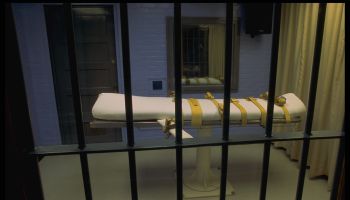WASHINGTON — President Barack Obama’s Supreme Court nominee began a week of intense examination Monday by a Senate panel that will scrutinize her qualifications for a life term on the country’s highest legal authority.
In a highly charged partisan atmosphere, Republicans planned to focus on Elena Kagan’s lack of judicial experience and liberal political background, but she is expected to win approval from the Democrat-dominated panel and confirmation by the full Senate.
Check out our gallery of the most important places in Washington, D.C.:
Senate Judiciary Committee chairman Sen. Patrick Leahy, a Vermont Democrat, noted that Kagan, if confirmed, would be the fourth woman to take a seat on the high court. She also would be Obama’s second selection to don the robes of a justice. The first was Justice Sonia Sotomayor, who was seated on the court last year.
“No senator should seek to impose an ideological litmus test to secure promises of specific outcomes in cases coming before the Supreme Court,” Leahy said.
Before the hearing began, the White House released remarks Kagan plans to make at the opening session, in which she focused on the American tradition of equal justice under the law.
“What it promises is nothing less than a fair shake for every American,” Kagan planned to say.
The 50-year-old Kagan now serves Obama as solicitor general, the country’s top lawyer who represents the government in cases before the Supreme Court. She brings a stellar legal resume to the job, with the exception of never having served on the bench.
Her background includes education at Princeton, Oxford and Harvard. She served as a clerk under liberal court icon Thurgood Marshall, worked in private practice, taught at and became the first woman dean at Harvard Law and served in the White House under former President Bill Clinton.
Kagan will speak of her varied background and lessons she took from those assignments.
“I will listen hard, to every party before the Court and to each of my colleagues,” excerpts of Kagan’s statement said. “I will work hard. And I will do my best to consider every case impartially, modestly, with commitment to principle, and in accordance with law.”
She was expected to be a liberal stalwart on a court that became more conservative with appointments during the administration of former President George W. Bush.
While a liberal by background, Kagan’s ascension to the court was unlikely to change its liberal-conservative balance in that she will be replacing retiring Justice John Paul Stevens who has historically voted with his three liberal colleagues on the nine-judge panel. The court interprets the constitution as it applies to legal cases that have moved through lower courts.
The court is one of the United States three branches of government, along with the White House-run government administration and the lawmaking U.S. Congress. Under the Constitution, the president has the duty to nominate new justices when a seat on the court becomes vacant. The Senate then must confirm or reject the nominee. A president’s choice is rarely turned back by the Senate.
Republicans have complained loudly about Kagan’s lack of judicial experience and about her politics, but she was broadly expected to win approval before the Supreme Court ends its session in August. She would become the youngest member and only the fourth woman to sit on the Court. Her swearing-in would mark the first time three women have presided there at the same time.
In 1999 Clinton nominated her for a seat on the federal appeals court in Washington, but the Republican-controlled Senate never acted on her nomination. The seat eventually went to future Chief Justice John Roberts.
Sen. Jeff Sessions of Alabama, the top Republican on the Senate Judiciary Committee, sees Kagan as a “dangerous nominee” given her relative youth, her thin legal record, liberal bent and an affinity for activist judges.
In a press conference at the conclusion of the weekend’s G-20 summit in Toronto, Obama rejected that argument.
He pointed out that Kagan “has the support, by the way, of a number of very conservative jurists who she’s worked with. So, as I examine some of the arguments that have been floated against her nomination over the last several weeks, it’s pretty thin gruel.”
Justice Antonin Scalia, the high court’s most outspoken conservative has framed Kagan’s lack of judicial experience as an asset.
With the nation in the midst of the Gulf of Mexico oil spill and disarray in the Afghan war and its high command, Kagan’s hearing has received little of the ballyhoo that surrounded Obama’s first nominee, now-Justice Sonia Sotomayor.
Regardless, Kagan’s hearing is taking place in an election year in which 36 seats in the Senate are up for grabs. Six are held by members of the Judiciary Committee.
Democrats were likely to promote Kagan’s pragmatic streak and her legal acumen. Republicans are examining her experience from other angles, particularly her lack of any time on the bench, her long political connections to Democratic causes and an incident during her tenure as dean at Harvard.
For a time she refused to give military recruiters access to the law school’s career services office, over the “don’t ask don’t tell” policy against openly gay soldiers. When the university was threatened with the loss of federal funding, she dropped the ban.
RELATED STORIES
OPINION: Why Elena Kagan Is The Perfect Choice For We The People
















